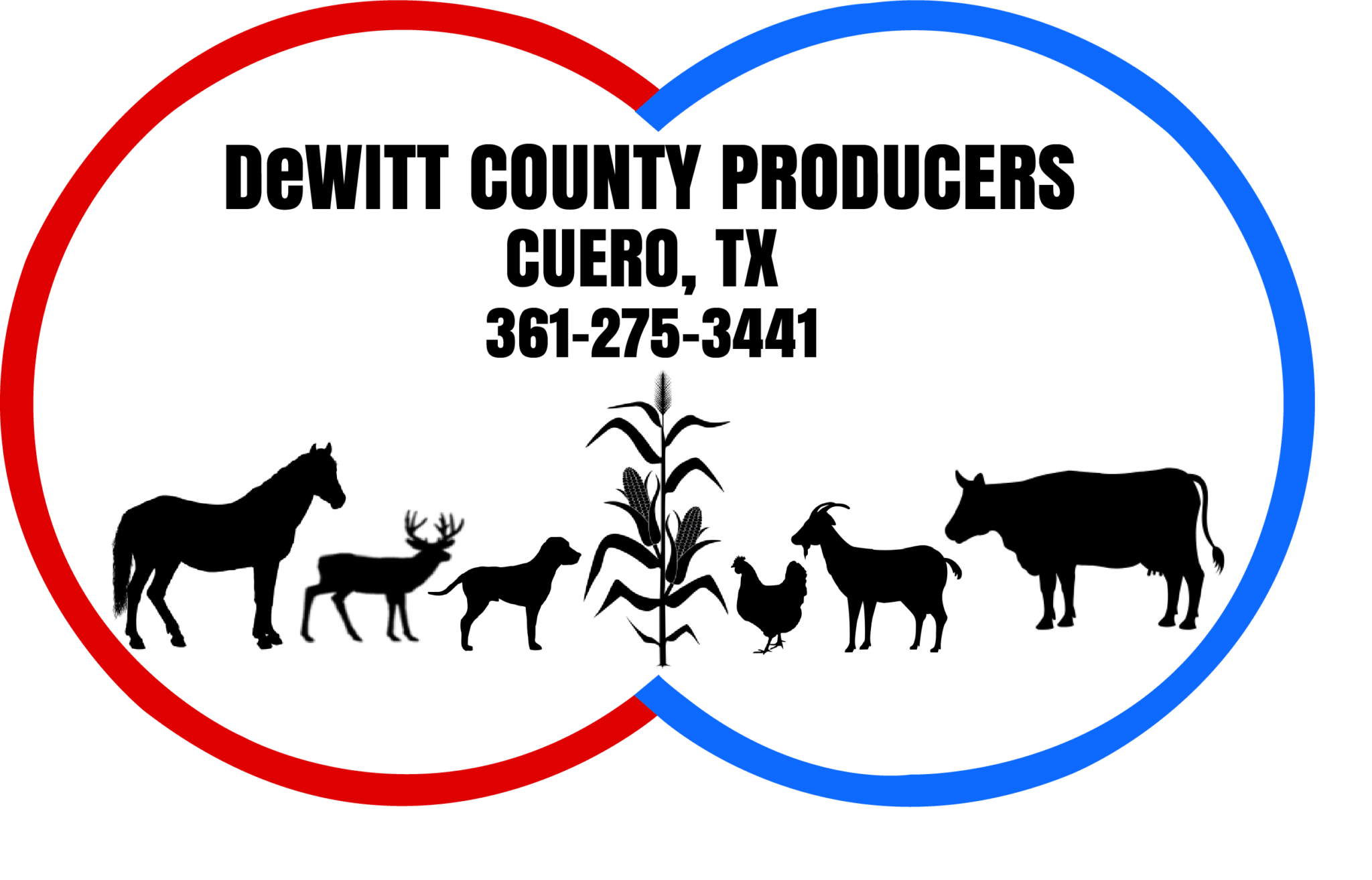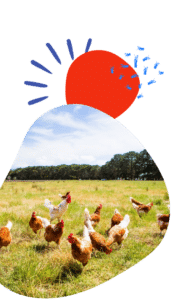Animal feed is an important part of overall livestock health. Just like humans, livestock also need a balanced diet for productivity, growth, and reproduction.
In this article, we will explain animal feed types for different animals. Livestock feed, including simple grains and forage, to special feeds with vitamins, probiotics, and minerals. We will also discuss feed for different animals like cattle, pigs, horses, and chickens. In addition, we’ll review how to pick supplements for horses and pellets for poultry, understanding animal nutrition.
What to Know About Livestock Feed (The TL;DR)
Before selecting feed for your livestock, here are the main points:
- Compound and blended feeds fit animal age and needs. This saves farmers time, money, and storage space. Plus, they meet daily nutrition requirements.
- Grains and pellets offer essential energy and nutrients. Pellets also boost digestion and can raise animal growth rates by around 10%.
- Silage keeps nutrients safe for cows and sheep by fermenting. It provides a good feed source when pastures are dry or low.
- Milk replacers, supplements, and medicated feeds help young animals grow. They boost immunity and also prevent or manage disease in livestock.
- Choosing feed types for the animal’s species and life stage helps health. It boosts productivity and cuts down on nutrition issues.
This guide shows the benefits of each feed type. It also gives practical tips to keep livestock healthy and productive all year.
Common Animal Feed Types
Animal feed comes in many forms to meet the nutritional needs of different livestock. Each type has unique characteristics and benefits for animal health.
Compound Feed
Compound feed is a mix of different ingredients and nutrients. It is made to match an animal’s age, growth stage, and daily needs. Manufacturers study what animals require to stay healthy. Then they create a special feed that meets these needs. This type of feed also helps farmers use safe and affordable resources.
Blended Feed
Blends are now popular with farmers because they save time and money. They are made by mixing different straight feeds. Farmers can use them in trough feeding systems or a mixer wagon diet. Blends also need just one storage bin or bay. This makes storage easier and helps cut down on labor costs for mixing feed on the farm.
Grains
Cereal grains are a key part of animal feed. In North America and northern Europe, crops like barley, corn, oats, rye, and sorghum are mainly grown for this purpose. Farmers feed these grains whole or ground. They can be given alone or mixed with high-protein oil meals, by-products, minerals, and vitamins.
Grains makes a complete feed for pigs and poultry. These grains can also be a dietary supplement for ruminants and horses.
Pellets
Pelleting is a process where mixed feed is steamed and pressed into small, solid shapes. Pellets have many benefits. They help reduce feed waste, boost nutrient intake, and improve digestion. This often leads to about a 10% better growth rate and feed efficiency in animals. High-quality pellets are also very durable. A good pellet has a durability index of over 90%, making it ideal for pelleted diets.
Silage
Silage is preserved grass that keeps most of its nutrients through fermentation. Farmers use it to feed cows and sheep, especially when fresh pasture is not available, like in the dry season.
To make silage, the grass is cut, chopped into small pieces, and packed tightly to push out oxygen. This helps the grass ferment properly. The process needs an acidic environment with a pH of about 4 to 5. This keeps the nutrients intact and makes the silage tasty and healthy for livestock.
Specialized Animal Feed
There are many types of special animal feeds made to suit the needs of different animals. Here are some common examples!
Milk Replacers
Milk replacers are used when young animals can’t get their mother’s milk. They provide easy-to-digest proteins, energy, vitamins, and minerals. These are often given to calves, goat kids, lambs, foals, and even puppies and kittens. Milk replacers give extra protein and energy that young animals need in their early stages of life.
Supplements
Supplements are added to animal feed to improve nutrition or fix certain health issues. For pigs they provide key nutrients like carbohydrates, fats, proteins, minerals, and vitamins. Some, like phytase, help pigs use more phosphorus from plants and reduce waste.
In fish and shrimp farming, nucleotide supplements can replace antibiotics. They help animals grow faster and use feed more efficiently. Protein ingredients made through enzymatic hydrolysis also give animals bioactive peptides and make the feed taste better.
Medicated Feed
Medicated feeds have medicines mixed in to support animal health. For example, medicated chick starter feed contains amprolium. This helps baby chicks fight coccidiosis by stopping the coccidia parasite from spreading.
It’s important to use medicated feed only for preventing disease, not for treating sick animals. Also, some animals like ducks or geese should not eat medicated chick feed, as they might get too much amprolium and overdose.
Organic Feed
Organic feeds are made from crops grown without synthetic chemicals like pesticides or fertilizers. They follow strict standards set by groups like the Northeast Organic Farming Association (NOFA).
These feeds support animal welfare and sustainable farming. For example, organic chickens often live twice as long as regular meat chickens. Organic cows must eat at least 60% forage in their diet, which encourages more natural grazing and healthier animals.
Choosing the Right Feed for Different Animals
Picking the right feed for each animal is key to keeping them healthy. Every species has its own nutritional needs. A balanced diet helps them grow, stay strong, and avoid health problems. In this section, we’ll explore the feed requirements for poultry, cattle, horses, and pigs.
Poultry Feed
Poultry need different types of feed depending on their age and purpose. Baby chicks start with a starter feed that has 20–24% protein to help them grow strong in the first six weeks. After that, they move to grower feed with 16–18% protein for healthy development.
Laying hens need layer feed, which has extra calcium to help form strong eggshells.
Chicken feed comes in three main forms:
- Mash – a fine powder that’s easy for chicks to digest.
- Crumble – coarser than mash but softer than pellets, perfect for transitioning birds.
- Pellets – firm, compact, and popular because they reduce waste.
Cattle Feed
Cattle diets are built around farm-grown grains, protein supplements, and fresh pasture grass for roughage. Hay and silage are also vital for keeping them healthy, especially in seasons when fresh pasture isn’t available.
Cattle doing heavy work or producing milk need concentrates like cereal grains or commercial mixes for extra energy. Mineral supplements support their overall health and bodily functions. Feeding cattle properly helps improve digestion, feed intake, and performance.
Horse Feed
What a horse eats depends on its workload and purpose. Horses in training or competition need more energy, quality protein, and balanced electrolytes than horses at rest.
All horses need plenty of forage, making up about 1.5–2% of their body weight daily. This keeps their digestive system healthy. For horses doing heavy work, concentrates can add energy. But these should be limited to 0.5–1% of their body weight daily to avoid digestive problems. Fat-based feeds are another safe and effective energy source for performance horses.
Swine Feed
Pigs have a simple digestive system, so their diets rely on grains and protein supplements. Their key needs are energy, protein, minerals, vitamins, and water.
Corn and soybean meal make up most pig diets. Corn gives energy, while soybean meal provides protein and essential amino acids. Young pigs need extra nutrients for growth, while adult pigs need them mainly for maintenance and reproduction.
Minerals like calcium, phosphorus, and iodized salt are also important for healthy growth and strong bones.
Animal Feed and Livestock Health
Animal feed plays a big role in keeping livestock healthy and productive. From compound feeds and grains to pellets, silage, and specialized options, each type meets specific nutritional needs. Choosing the right feed supports growth, reproduction, and overall well-being.
At DeWitt County Producers, we provide quality feed, seed, fertilizer, and supplies to farmers and ranchers in DeWitt County and beyond. As a member-owned cooperative, we’re committed to helping our community succeed.
Visit dewittproducers.com to learn more.

